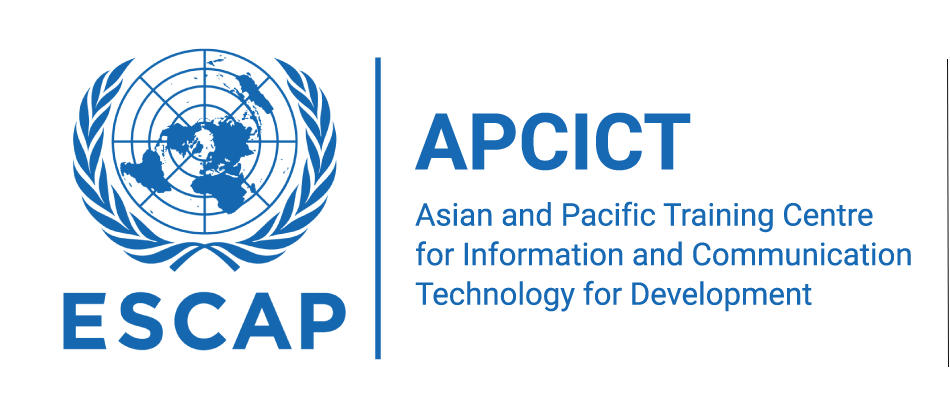UN-APCICT signed on 10 September 2008 separate agreements with Mongolia’s Information and Communication Technology Authority (ICTA) and the Pacific Islands Applied Geoscience Commission (SOPAC), which will see both organizations customize an APCICT training curriculum, the Academy of ICT Essentials for Government Leaders.
Press Release No. G/40/2008
11 September 2008
Bangkok (UN/ESCAP Information Services) - Two new agreements with the United Nations are expected to help improve the ability of policymakers and government leaders to better leverage information and communication technology (ICT) for social and economic development in Mongolia and Pacific Island states.
The United Nations Asian and Pacific Training Centre for Information and Communication Technology for Development (UN-APCICT) signed Wednesday separate agreements with Mongolia’s Information and Communication Technology Authority (ICTA) and the Pacific Islands Applied Geoscience Commission (SOPAC), which will see both organizations customize an APCICT training curriculum, the Academy of ICT Essentials for Government Leaders.
APCICT is a subsidiary body of the United Nations Economic and Social Commission for Asia and the Pacific (ESCAP), working towards strengthening the efforts of ESCAP’s member countries to use ICT for development through building human and institutional capacity for ICT.
The agreements were signed by Hyeun-Suk Rhee, Director of APCICT, with J. Sansar, Chairman of ICTA, for the Mongolia partnership; and with Cristelle Pratt, Director of SOPAC, for the Pacific region partnership.
“Mongolia is a challenging place for development – landlocked, and with extreme climate dominated by sparsely populated steppe and semi-desert,” said Ms. Rhee. “The uses of ICT there are many, especially when it comes to combating the tyranny of distance.”
In Mongolia, ICTA is implementing the e-Mongolia National Programme with the ultimate aim to enhance people’s life quality through projects such as ‘PC for All’ and ‘IT Literacy for All Citizens.’ In partnership with Intec Company, ICTA has already planned to organize the first national Academy workshop in November this year, targeting ministers, members of parliament and other senior officials.
“At the other end of the spectrum, we have the Pacific Island states – completely different to Mongolia on the surface, but with many of the same challenges that ICT could help to overcome,” said Rhee. “The 22 island states are faced with the problems imposed by the small scale and scattered nature of their populations and markets, vulnerability to the impacts of climate change, and the lack of supporting infrastructure such as electricity and communications.”
In the Pacific, the Cook Islands, the Fiji Islands, Samoa, Tonga and Vanuatu have ICT policies in place with other island countries indicating support to ICT for development, but they all face financial and skilled human resources constraints. A regional Academy workshop was just held in the Cook Islands on 2-5 September, 2008. The workshop generated demand from policy makers from different Pacific Island countries who participated, and they requested for such training in their countries. As a result, SOPAC is planning to hold 14 national Academy workshops over the next two years.
The Academy consists of eight core modules that begins with ICT basics and builds up to more advanced ICT for development topics. Topics range from the linkage of ICT and the Millennium Development Goals; ICT for development policy, process and governance; e-government applications; security and privacy issues; and ICT project management.
Similar collaborations are underway in Afghanistan with the Ministry of Communications and Information Technology. Upcoming national Academy implementations are also being planned in India and the Philippines.
This news is featured by:


